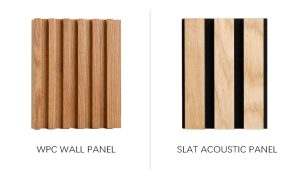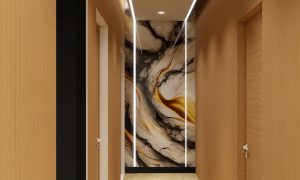
Capsule houses, also known as micro-homes or compact living spaces, offer several advantages that cater to specific preferences, lifestyles, and environmental considerations. Here are some potential advantages of capsule houses:
- Cost-Effective: Capsule houses are often more affordable than traditional homes, making them an attractive option for individuals or couples looking to minimize their housing expenses.
- Energy Efficiency: The small size of capsule houses typically requires less energy for heating, cooling, and overall maintenance. This can contribute to reduced energy consumption and lower utility bills.
- Minimalistic Lifestyle: Capsule living encourages a minimalist lifestyle, as residents must prioritize essential belongings and avoid unnecessary clutter. This can lead to a simpler, more organized life with fewer material possessions.
- Mobility: Some capsule houses are designed to be easily transportable. This flexibility allows individuals to relocate their homes easily, which can be appealing for those who enjoy traveling or want to adapt to changing circumstances.
- Environmental Sustainability: Capsule houses often have a smaller environmental footprint due to their reduced energy consumption and materials used in construction. This aligns with the growing interest in sustainable and eco-friendly living.
- Quick Construction: The compact design of capsule houses can lead to faster construction times compared to larger, more complex structures. This efficiency can be advantageous in terms of both time and cost.
- Innovative Design: Capsule houses often showcase innovative and creative architectural designs to maximize space efficiency. These designs can be visually appealing and provide inspiration for alternative approaches to housing.
- Low Maintenance: With fewer square feet to maintain, capsule houses can require less time and effort for cleaning, repairs, and general upkeep. This can be especially beneficial for individuals with busy lifestyles or those looking to simplify their daily routines.
- Affordable Housing Solution: Capsule houses can serve as an affordable housing solution in areas where traditional housing costs are high. They may be a viable option for addressing housing shortages and providing cost-effective living spaces.
- Community Development: Some capsule housing projects are designed to create communities of like-minded individuals who value simplicity, sustainability, and shared resources. This can foster a sense of community and collaboration.
It’s essential to note that while capsule houses offer various advantages, they may not be suitable for everyone, as personal preferences and lifestyle choices play a significant role in housing decisions. Additionally, local regulations and zoning restrictions may impact the feasibility of constructing capsule houses in certain areas.
How to import capsule house in China?

Importing a capsule house to China involves several steps, and it’s crucial to adhere to the country’s regulations and import procedures. Here’s a general guide to help you with the process:
- Research Regulations:
- Familiarize yourself with China’s import regulations and requirements for modular or prefabricated housing units. The regulations may vary based on the type of materials used, construction standards, and other factors.
- Choose a Reliable Supplier:
- Select a reputable manufacturer or supplier of capsule houses. Ensure they comply with international standards and have experience exporting to China.
- Customs Classification:
- Determine the correct customs classification for the capsule house. This information is crucial for proper documentation and compliance with import duties and taxes.
- Importer Registration:
- Register as an importer with the General Administration of Customs in China. This may involve providing necessary documentation and fulfilling specific requirements. You may need a local agent or representative to assist with the registration process.
- Obtain Necessary Licenses and Permits:
- Check if you need any special licenses or permits for importing capsule houses. This may include approvals from relevant authorities such as the Ministry of Housing and Urban-Rural Development.
- Comply with Standards and Regulations:
- Ensure that the capsule houses meet the required standards and regulations set by Chinese authorities. This may involve obtaining certification or approvals from relevant agencies.
- Shipping Arrangements:
- Arrange for the transportation of the capsule houses to China. Work with a reliable freight forwarder to handle the logistics, shipping, and customs clearance.
- Customs Declaration:
- Prepare the necessary customs declaration documents, including the commercial invoice, packing list, bill of lading, and any other required certificates. Ensure that the documentation complies with Chinese customs regulations.
- Pay Import Duties and Taxes:
- Be prepared to pay any applicable import duties and taxes. The amount will depend on the declared value of the capsule houses and the specific tariff rates.
- Customs Clearance:
- Once the capsule houses arrive in China, work with a customs broker to facilitate the clearance process. This involves submitting the required documents and paying any outstanding duties or taxes.
- Delivery to Destination:
- Coordinate the final delivery of the capsule houses to their intended destination within China.
- Post-Import Compliance:
- Ensure ongoing compliance with local regulations and standards, and address any post-import requirements or inspections.
It’s advisable to work closely with professionals experienced in international trade, including customs brokers and legal experts, to navigate the complexities of importing capsule houses into China successfully. Additionally, staying informed about any changes in regulations and requirements is crucial for a smooth import process.






